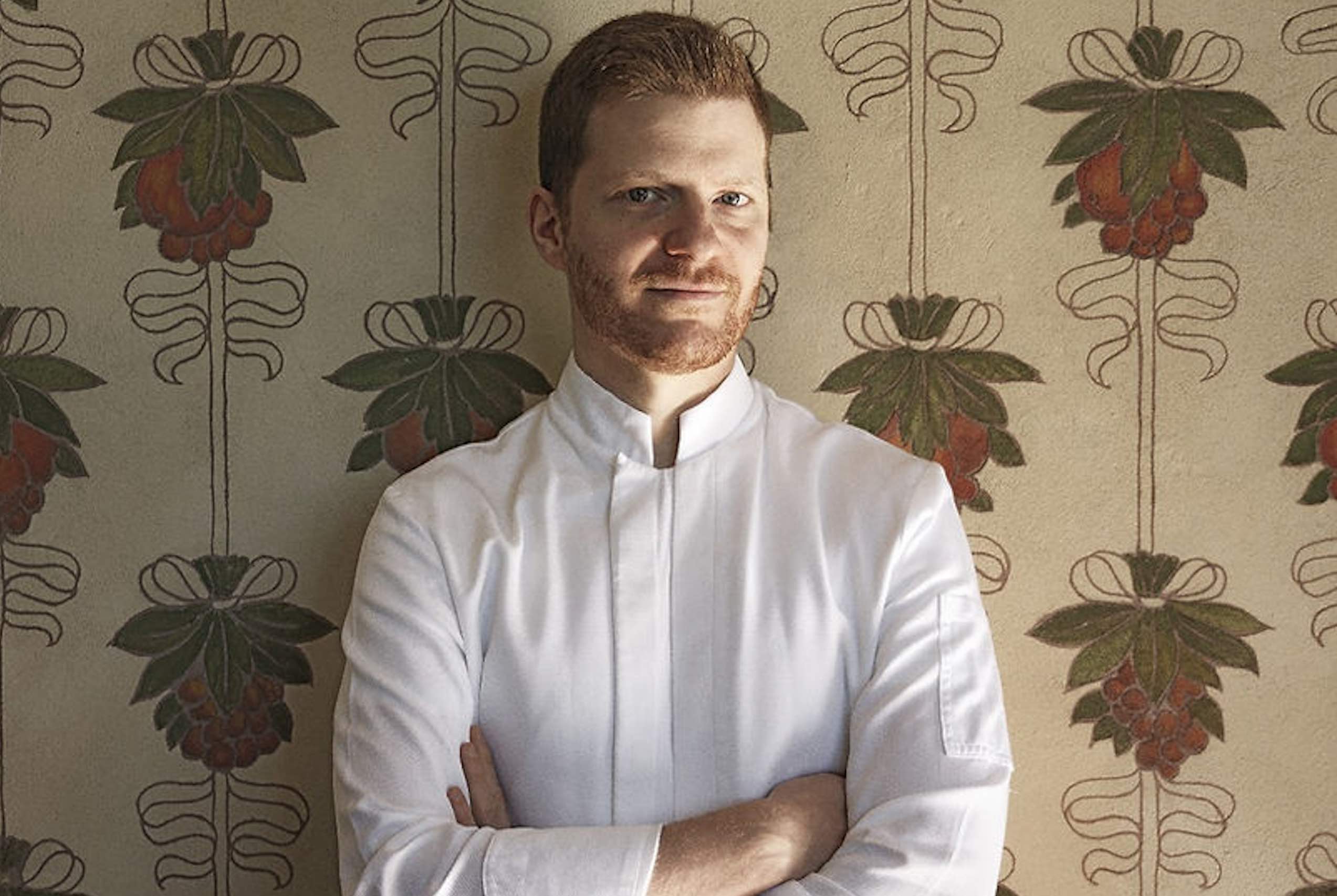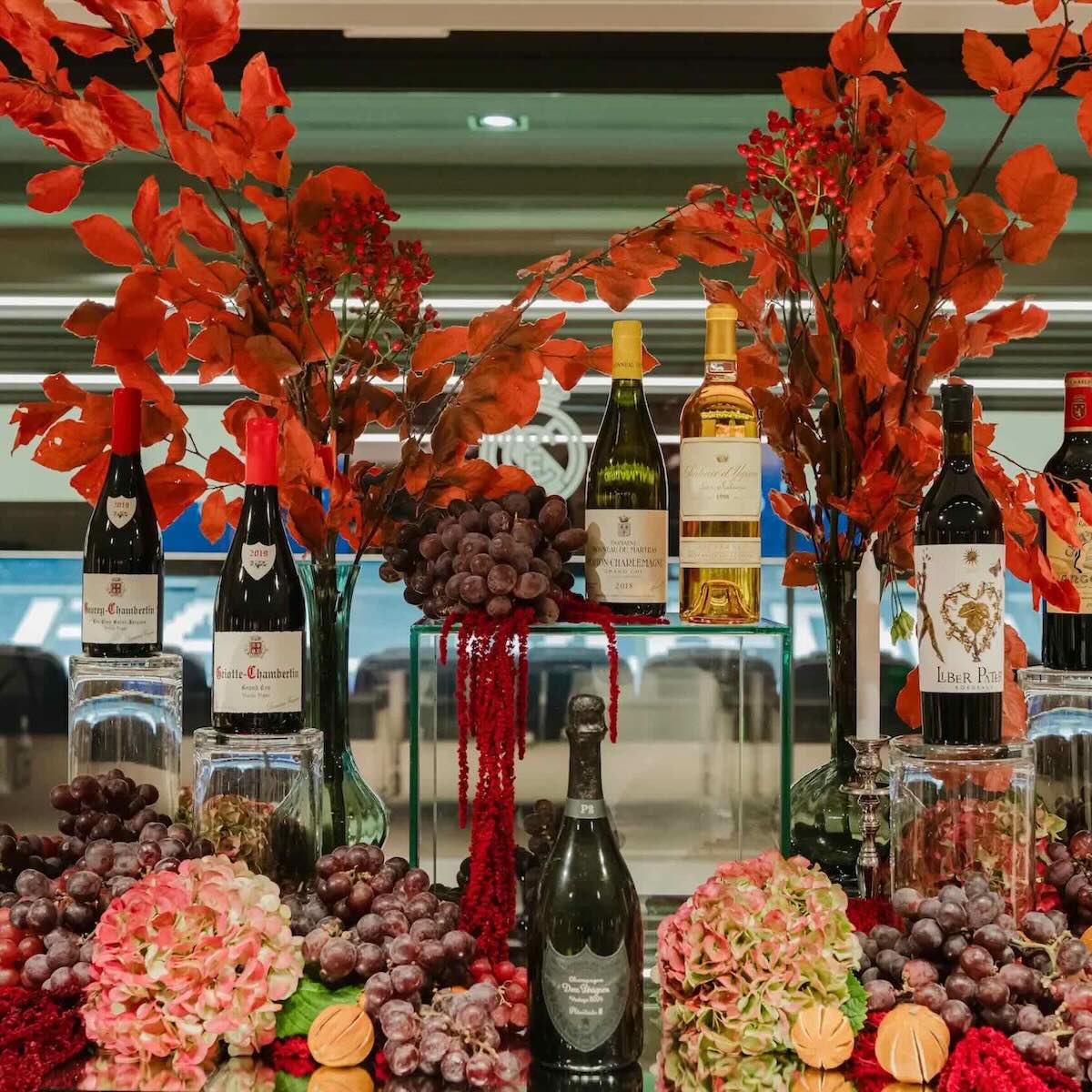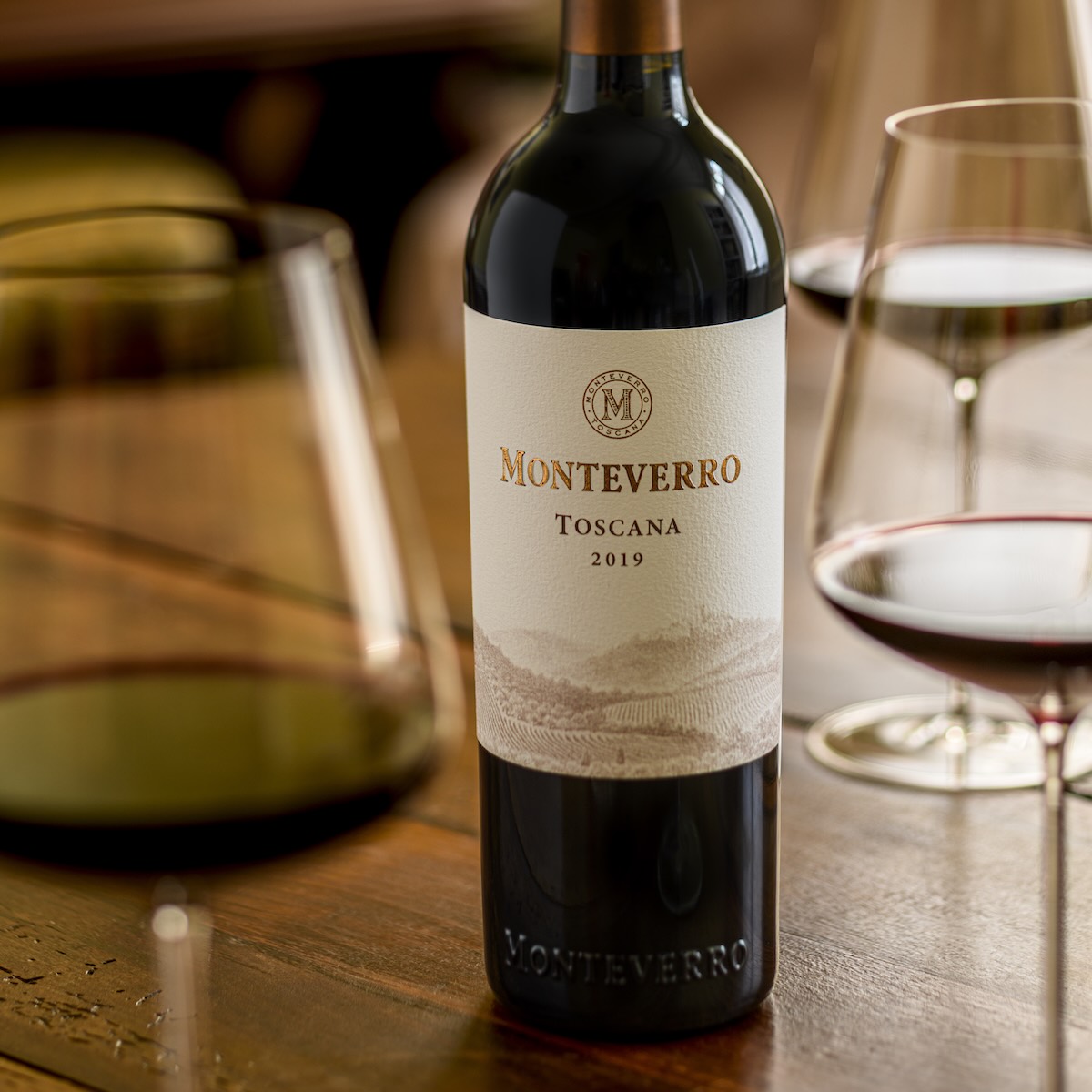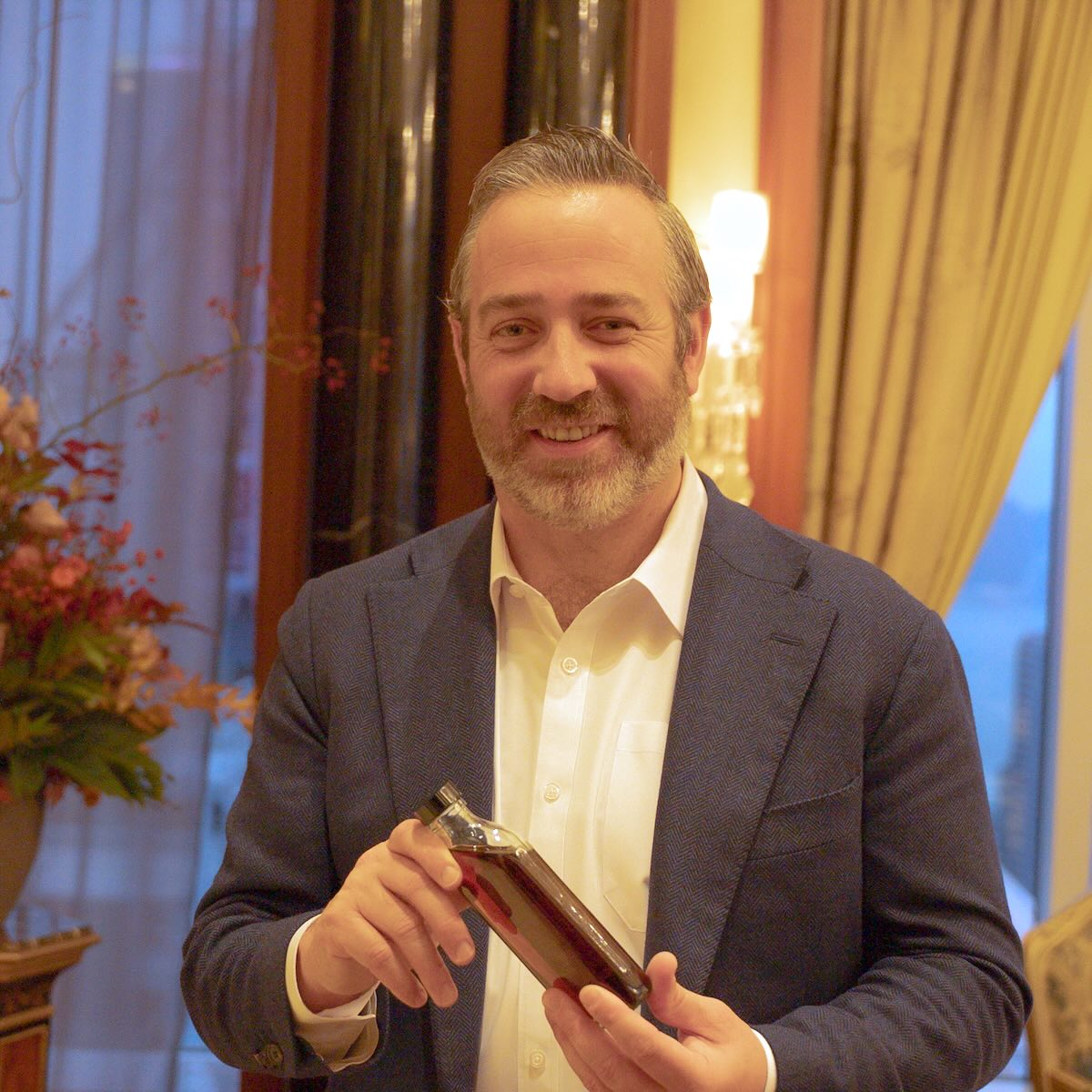This story is part of a series of features covering MGM x RR1HK Culinary Masters Macau 2024, hosted at MGM COTAI in Macau on 28–30 June 2024.
There’s a distinct Vincent Van Gogh-like colour scheme to Marco Galtarossa’s social media account, except the artistic chef’s paraphernalia is from the kitchen cabinets, not the paint cupboard.
His sunflower palette is filled with images of fresh ingredients, agrumi (citrus), fresh crops of roots and tubers, artfully plated starters with vibrant vegetables, a bird’s-eye view of wild herbs proliferating in nature, a cheeky shot of an unknowing chef prepping and plating behind shelves studded with fresh ingredients, and the pattern of wild morels laid out like a mosaic, all of which will come into use somehow, somewhere at Villa Elena, the Michelin-star-studded seven-table restaurant situated in the hills of Città Alta in Bergamo, Italy.
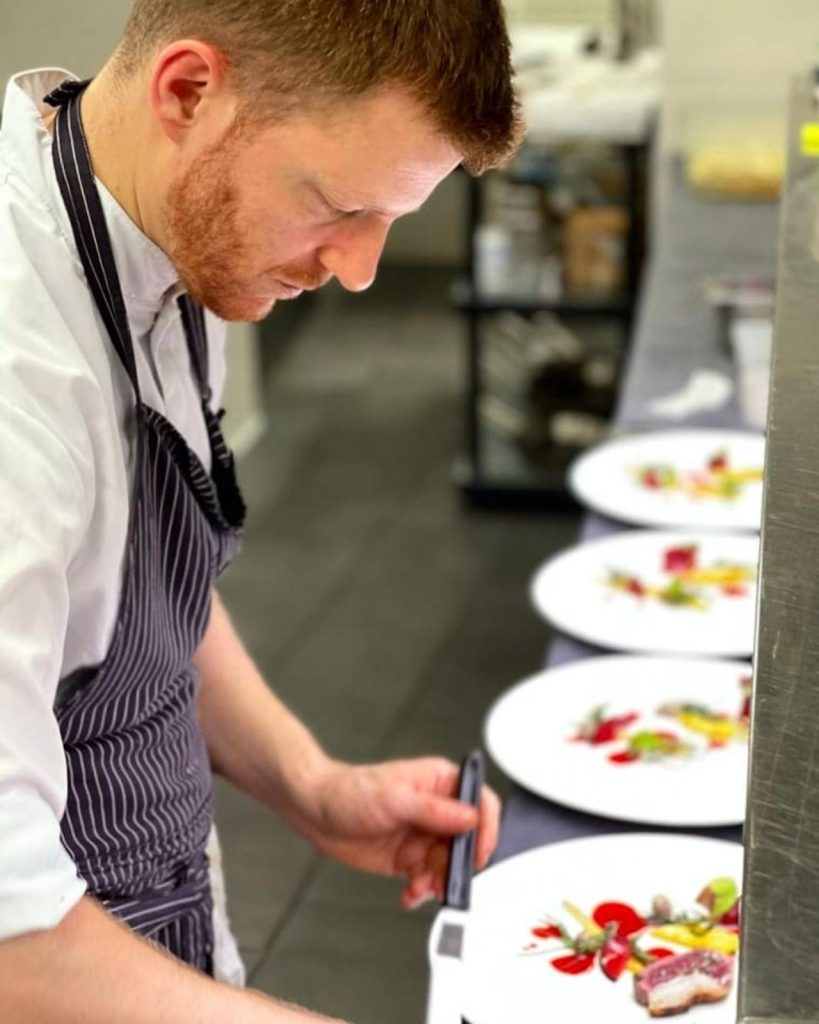
When the young chef walked into the famed 16th-century villa—with a medieval tower, surrounded by stucco, marble, frescoes, and mirrors—he had to create a menu to match the historic standards of the proud edifice. In partnership with Enrico Bartolini, building meal plans in a country studded with more than 300 Michelin stars, was a true challenge. Galtarossa met it head-on, creating a luxurious space with a multi-layered menu spotlighting aromatic herbs, with a background of paintings and vibrant colour, and the chef’s artful flourish now appears on a plate. Among many positive reviews, awards, and honours, he adds to his roster a new title: Culinary Master.
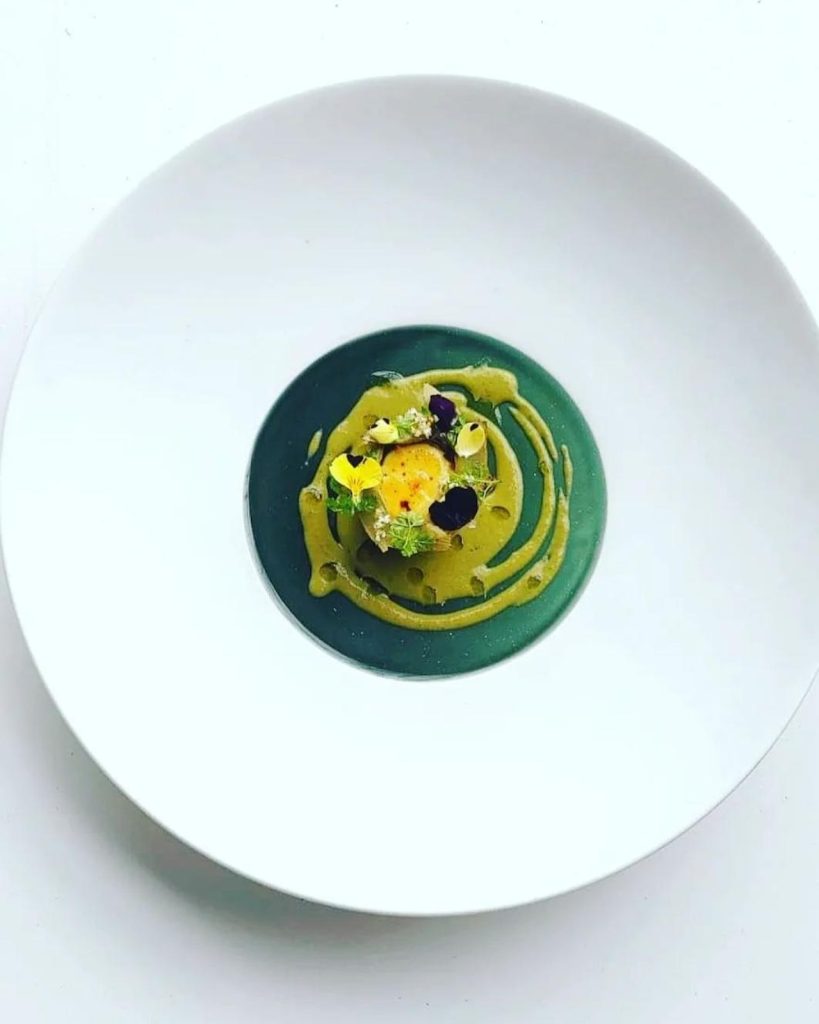
For the latest edition of RR1 Hong Kong’s Culinary Masters, presented by Robb Report Hong Kong, Galtarossa is on his way to Macau to bring his unique take on contemporary cuisine to the dining tables of MGM x RR1HK Culinary Masters Macau 2024, taking place at MGM COTAI, Macau, on 28 to 30 June 2024. Galtarossa says he’s grateful for the long history of the Silk Road, which eventually led to the enhancement of local cuisine, adding a splash of new flavours to old recipes.
Villa Elena Bergamo is seen as an exquisite dining destination. What sets it apart from others, especially in a country which has a whopping 395 Michelin stars?
The villa was a private house full of history and arts. Our three dining rooms are rich in frescos painted in the 19th century [so it] feels like dining in a museum. We only have seven tables so it is an intimate experience where guests can merge with the history of Villa Elena.
We loved that your social media is a festival of colours—of fruits, vegetables, citrus, and beautiful plating. Tell us a bit about how you choose your produce and ingredients.
The property where the villa is located is three hectares, where we also have our own garden. We try to produce most of the vegetables, herbs, and flowers on our own. We mostly source the ingredients from local producers. Given that the indoor space is rich in wall paintings, [we think] our food should [also] reflect the beauty of fine dining. Every dish is paired with the perfect herb and a nice flower to enrich the colourfulness of any ingredient we use.
Housed in a 16th-century building with a medieval tower, what are the benefits and challenges of cooking in an old kitchen? How important is tradition and legacy?
Tradition is the key to be creative. We define our cuisine as contemporary classic. Italians are very bonded to their traditions. However, thanks to the international growth we are facing, Italian gastronomy is also adapting and people’s taste is wider and [more] eager to experience more flavours combined.
What are you looking forward to doing in Macau, apart from Culinary Masters?
We want to get inspired by the great Chinese identity as well as the multicultural environment that glows in Macau [as a Special Administrative Region of China]. We wish to hang around and get lost in the city, meet locals, and fall into their tradition. We want to embrace this experience to enrich our knowledge and bring it back home.
What advice would you give to young chefs or culinary students who aspire to achieve Michelin-starred success like yours?
Strong commitment, high curiosity to keep learning, and looking at the world as [a] source of inspiration, but most importantly, you need to be humble. Do not take anything for granted. Consistency towards your goals will lead you to something; do not take shortcuts. To become a Michelin-starred-chef, you will fail many times, but do not stop if this is what you want. Talk to people, [and] go out and taste as much as possible, because your inner library will be filled with all the aromas and tastes.
How do you think the Silk Road has influenced Italian cuisine, and your own cooking?
We use spices every day; I could not think [of] my cuisine without Silk Road ingredients, especially liquorice. In the past, Europeans were reluctant to use the unknown ingredients from the Far East. Nowadays, the basics of Italian gastronomy require cinnamon, cloves, liquorice, black pepper, and nutmeg. Food unifies us all and this is the example. Thank you, Marco Polo—forever grateful!
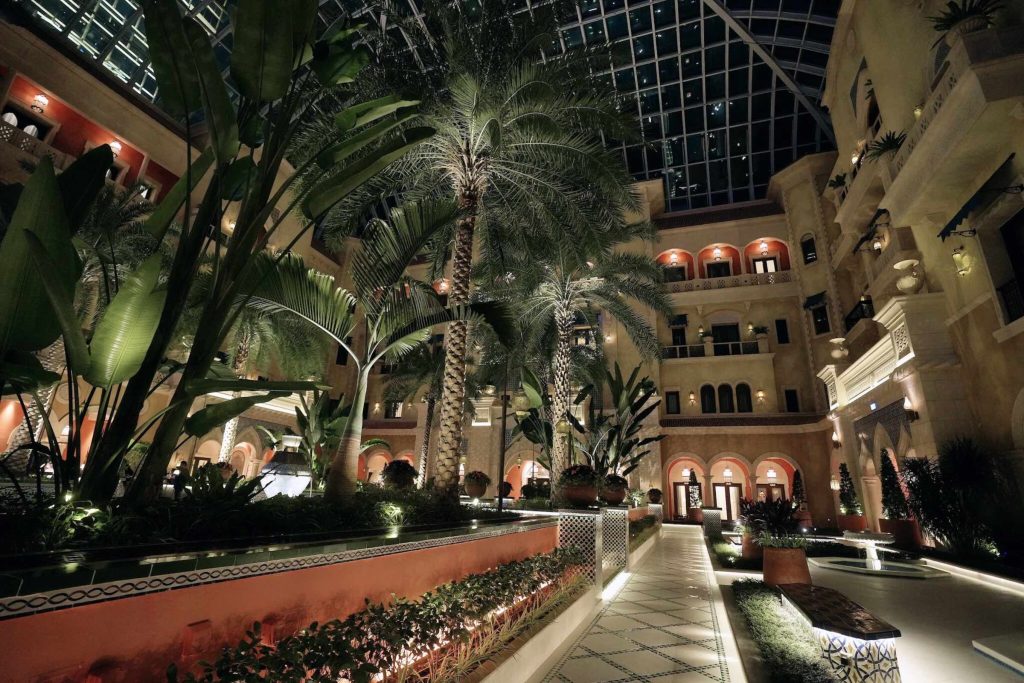
Culinary Masters brings different chefs from all over the world together in one place for an extraordinary gastronomic exchange. You’ll get a chance to interact with chefs representing many different cuisines. What do you hope to learn from them?
I hope to learn more about food by touching, smelling, and tasting ingredients that I am not familiar with. By talking to my international colleagues, I hope to blend my Italian background with theirs to learn new techniques and their vision of fine cuisine. It is also interesting to me to understand how the cooking process that I normally use [is different] as our background is different, and they may give me another perspective of certain ingredients.
Culinary Master guests hail from around the world. What would you like to showcase for them through the gala dinner?
The goal is to show how contemporary Italian gastronomy is linked to Asian [gastronomy]. We blend many cultures together as we live in a globalised world. We can say that each country has its own traditions; however, through food, it is clear that we are all connected and we all need the combo: great quality and great taste.
Many iconic Italian dishes have origins that can be traced back to trade routes and cultural interactions along the Silk Road. Which traditional Italian recipes will you be putting a “Silk Road twist” on for this event, and how will you honour those historical connections?
Spices such as cloves and nutmeg became the pillars of many Italian sauces. In Macau, I will bring a risotto that blends Italian traditional techniques with Asian ingredients too, such as yuzu, seaweed, and other spices. I am honoured to bring a dish from my childhood with this aromatic twist. Italy has always been a connecting land for many cultures and this has enriched our history as well as our taste. It is a blessing that now we can use ingredients from all over the world.
What special thing will you bring to the event that’s different from the menus at Villa Elena—or is it an extension of it?
I usually use Asian ingredients for my menus, but in Macau, I will extend even more the richness of those ingredients.
When curating a menu for Culinary Masters, what key factors do you consider? How do you balance seasonal dishes, audience preferences, and coordination with the other chefs’ offerings?
Chefs should believe in what they do, especially when their ideas are unconventional. However, what makes us chefs is [if our guests like our food]. Taste should win over [everything]. The goal is to always use seasonal ingredients because they give their best taste when used properly and at the perfect time. When working along with other Culinary Masters, we should all understand [each other’s] needs, but most importantly, the general goal: [connecting] our backgrounds to create an exquisite experience.
If you could travel back in time, which Silk Road destination would you most want to cook in?
If I could travel back in time, I would stay close to Marco Polo and jump into any destination he visited.
The most important Italian culinary tradition you’re honouring.
Time is the key factor to making great Italian food. I guess patience is the keyword. Our tradition is full of great recipes that require time and love to perform at their best.
Favourite Italian ingredient you’re elevating with Silk Road flair.
Any vegetable with Sichuan pepper and yuzu.
Three words to describe your Silk Road-inspired menu?
Traditional, modern, and open-minded.
What was the most surprising Silk Road ingredient you discovered during your menu development?
The powerfulness of Sichuan pepper is astonishing.
For more delicious details, visit rr1hongkong.com/culinary-masters-2024.
Images of chef and dishes courtesy of Chef Marco Galtarossa.





